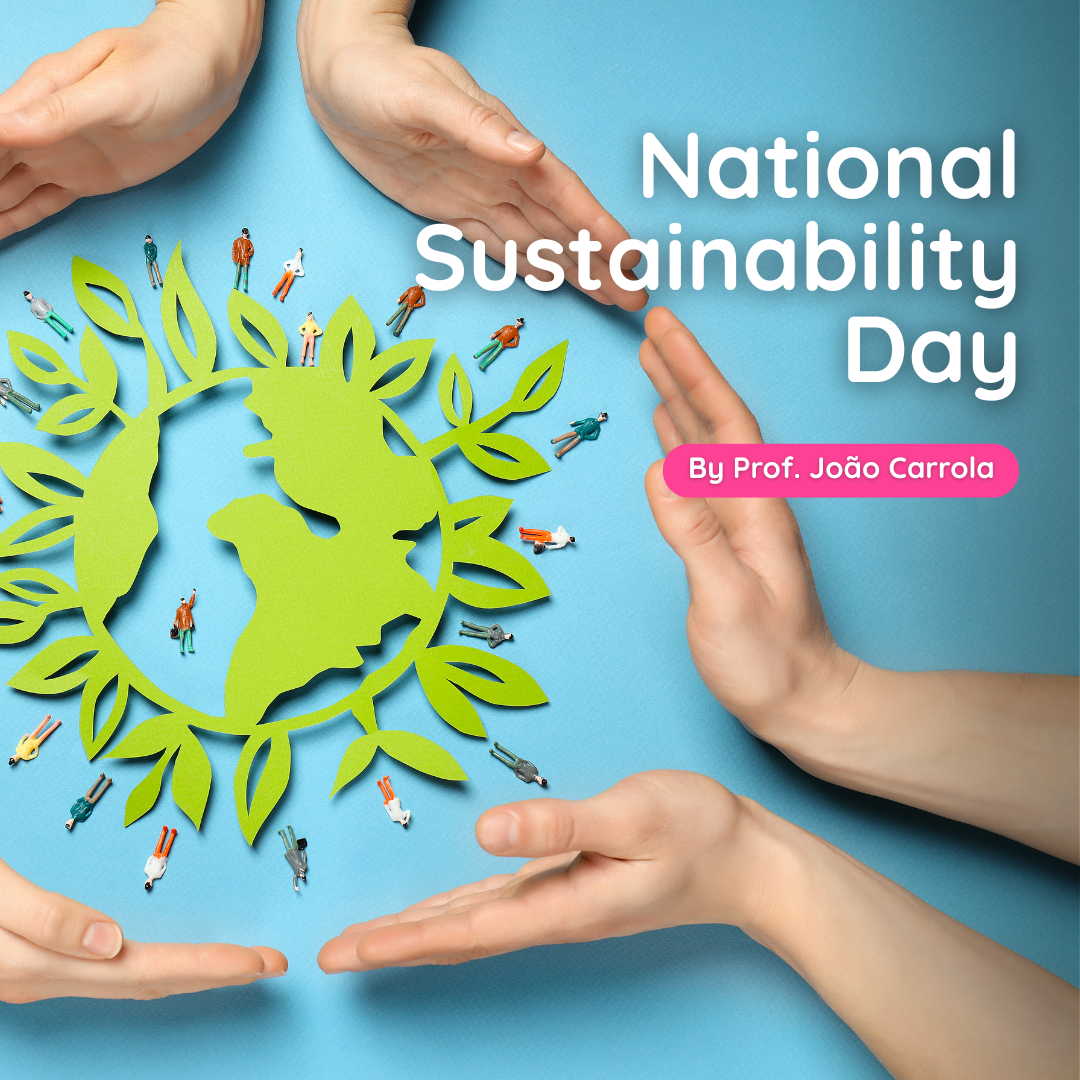National Sustainability Day
National Sustainability Day aims to disseminate and promote knowledge for conscious behavioural change with transformative potential for a more sustainable future. This date coincides with the adoption of the UN Sustainable Development Goals (SDGs) in 2015.

The challenges and importance of sustainable development are irrefutable worldwide, requiring a new form of economic growth that allows "meeting the needs of the present without compromising the needs of future generations, ensuring a balance between economic growth, environmental conservation, and social well-being ("Our Common Future" - Brundtland Report, 1987).
Sustainability is a global goal, but it requires, above all, regional action. The research conducted by CITAB has played an important role in its various aspects, contributing to the advancement of science and technology and increasing the skills of various stakeholders to achieve environmental and agri-food sustainability goals.
CITAB has focused heavily on effectively resolving social and environmental issues inherent to private sector practices related to agricultural and forestry production in various areas of Portugal. CITAB's research has contributed to the conservation of water and biodiversity in terrestrial and aquatic ecosystems, improved soil health and management, and improved genetic resources, biodiversity preservation and landscape management for more sustainable agricultural production, crop protection, the valorisation of bioproducts and by-products, the circular economy, and food science and innovation.
Our group has been studying the effects of pollution caused by pharmaceuticals, psychoactive substances, and illicit drugs, which have multiple effects on aquatic and terrestrial ecosystems, impacting biodiversity, food chains, and human health. We intend to better understand the effects of these toxics in the laboratory using zebrafish (Danio rerio) and daphnia (Daphnia magna). Additionally, field studies can be conducted to better understand the impacts of pollution on river fish fauna using biochemical, histological, and genetic biomarkers to better understand the real impact of pollution caused by emerging contaminants such as microplastics.
Furthermore, we have been working with Eisenia fetida, the red earthworm, as a model to study the effects and accumulation of toxics present in agricultural soils.
It is important to investigate and understand these effects to take adequate measures to mitigate environmental risks by conserving or achieving "good ecological status" of water resources, as defined by the Water Framework Directive and safer drinking water. We must also consider the possible impacts of environmental contamination on food chains and public health, considering the concept of “one health”, which recalls and reinforces the interconnection between humans, ecosystems, and the living world (microorganisms, flora, and fauna).
Start date: Thursday, 25th September 2025